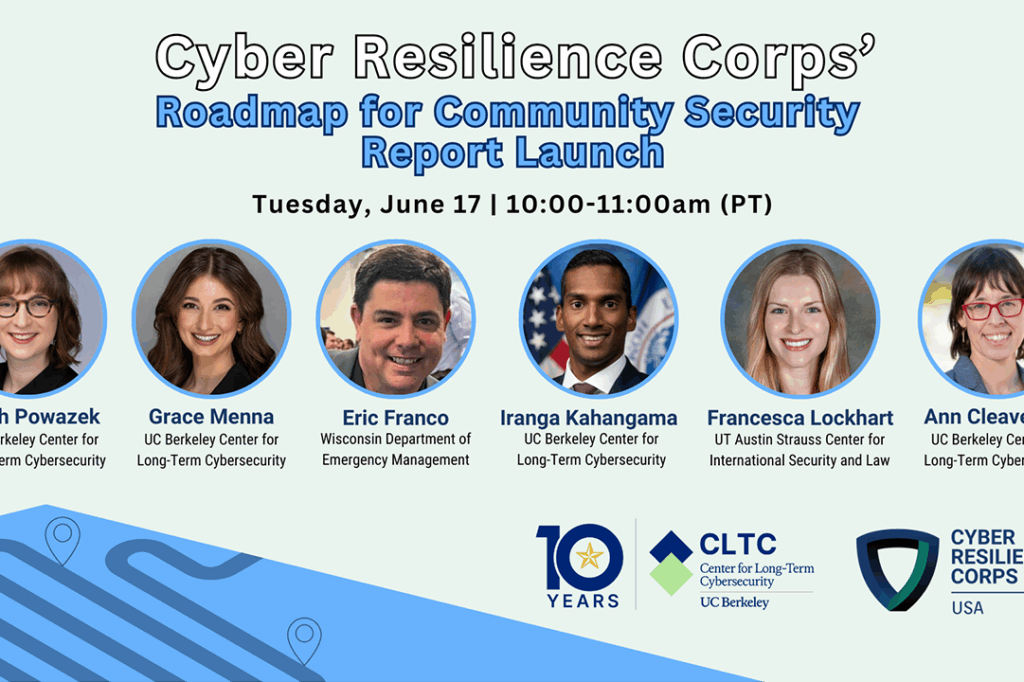 The Consortium of Cybersecurity Clinics has launched a new website (https:///cybersecurityclinics.org) that aims to help universities in the U.S. and around the world to share insights and best practices for launching and operating a cybersecurity clinic.
The Consortium of Cybersecurity Clinics has launched a new website (https:///cybersecurityclinics.org) that aims to help universities in the U.S. and around the world to share insights and best practices for launching and operating a cybersecurity clinic.
Established in 2021 through a grant from the Public Interest Technology University Network (PIT-UN), a partnership of 48 colleges and universities convened by New America, the Ford Foundation, and the Hewlett Foundation, the Consortium of Cybersecurity Clinics is working to advance cybersecurity education for public good and grow the number of cybersecurity clinics around the world. The Consortium serves as a forum for clinicians, trainers, and advocates to network and share knowledge, expand the reach of cybersecurity clinics, and lower the barriers for other institutions of higher education to successfully establish their own clinics.
CLTC has played a central role in launching the Consortium of Cybersecurity Clinics, building on the success of Citizen Clinic, a trailblazing public interest digital security clinic at UC Berkeley that trains and deploys student teams to help nonprofits, journalists, human rights defenders, and social justice activists defend themselves against digital threats. Since 2018, Citizen Clinic has trained over 100 students drawn from 11 academic specialties, and has served 14 nonprofit clients on four continents.
As part of its mission, Citizen Clinic works to expand its impact by sharing institutional knowledge and serving as a model and collaborative resource for other universities, including through the Consortium of Cybersecurity Clinics. Other members of the consortium include the MIT Cybersecurity Clinic, Indiana University (IU) Cybersecurity Clinic, University of Alabama Cybersecurity Clinic, University of Georgia CyberArch initiative, Global Cyber Alliance (GCA), Rochester Institute of Technology, and the R Street Institute.
The Consortium’s newly launched website will serve as an online clearinghouse for sharing teaching resources, curricula, video-based case studies, and other instructional materials. The site includes links to existing resources, such as the Citizen Clinic Cybersecurity Education Center and Baseline Organizational Security Guide; MIT’s Cybersecurity for Critical Urban Infrastructure Course; and Global Cyber Alliance’s Cybersecurity Toolkit for Mission-Based Organizations and Cybersecurity Toolkit for Small Businesses.
The website aims to help grow the consortium’s membership and assist existing clinics to strengthen and connect. It includes brief profiles of member institutions, as well as a blog, through which clinic leaders can share ideas and updates with the cybersecurity clinic community. In one post, for example, CLTC Executive Director Ann Cleaveland provided an update on a recent consortium meeting that addressed how clinics can protect the privacy and security of clients and students.
“Each clinic needs to have an instructor, teaching assistant, or other staff person who is responsible for OpSec,” Cleaveland wrote. “Depending on the risk of the clinic’s target client demographic, individual clinics will elect different technical infrastructure and policies to protect student and client anonymity — for example, using VPNs, providing students with dedicated laptops and phones for client engagement, and anonymizing client identities in class projects and written materials, among other measures.”
The new website also includes links to a video produced by the Public Interest Technology University Network (PIT-UN) that features Cleaveland and Lisa Ho, Academic Director of the School of Information’s Master of Information and Cybersecurity (MICS), sharing insights based on their experience from overseeing Citizen Clinic. The video is part of a series of “PIT Cases,” a website developed by PIT-UN to share knowledge about projects and classes run by members in the network. The case studies are presented as part of PIT-UN’s mission “to help advance the field of public interest technology to bring positive impact to communities around the globe.”




